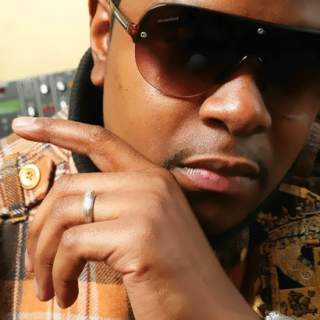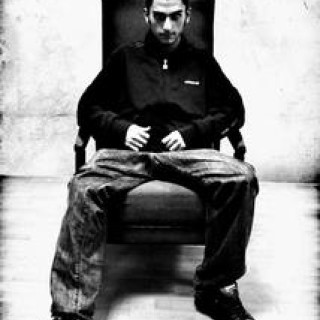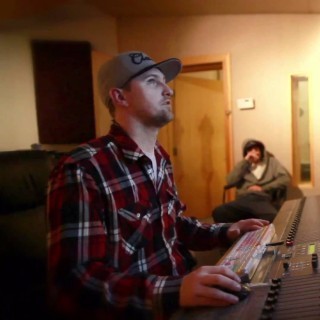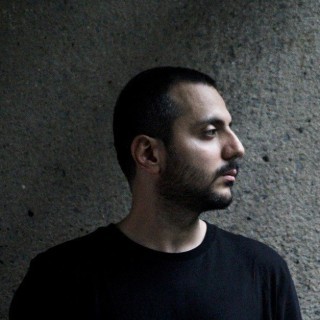
54
Poetry
Tekst piosenki
Loredano And Barbarigo
Lor. Where is the prisoner?
Bar.Reposing from
The Question.
Lor.The hour's past—fixed yesterday
For the resumption of his trial.—Let us
Rejoin our colleagues in the council, and
Urge his recall.
Bar.Nay, let him profit by
A few brief minutes for his tortured limbs;
He was o'erwrought by the Question yesterday,
And may die under it if now repeated.[at][37][122]
Lor. Well?
Bar.I yield not to you in love of justice,
Or hate of the ambitious Foscari,
Father and son, and all their noxious race;
But the poor wretch has suffered beyond Nature's
Most stoical endurance.
Lor.Without owning
His crime?
Bar.Perhaps without committing any.
But he avowed the letter to the Duke
Of Milan, and his sufferings half atone for
Such weakness.
Lor.We shall see.
Bar.You, Loredano,
Pursue hereditary hate too far.
Lor. How far?
Bar.To extermination.
Lor.When they are
Extinct, you may say this.—Let's in to council.
Bar. Yet pause—the number of our colleagues is not
Complete yet; two are wanting ere we can
Proceed.
Lor.And the chief judge, the Doge?
Bar.No—he,
With more than Roman fortitude, is ever
First at the board in this unhappy process
Against his last and only son.[38]
Lor.True—true—
His last.[123]
Bar. Will nothing move you?
Lor.Feels he, think you?
Bar. He shows it not.
Lor.I have marked that—the wretch!
Bar. But yesterday, I hear, on his return
To the ducal chambers, as he passed the threshold
The old man fainted.
Lor.It begins to work, then.
Bar. The work is half your own.
Lor.And should be all mine—
My father and my uncle are no more.
Bar. I have read their epitaph, which says they died
By poison.[39]
Lor.When the Doge declared that he
Should never deem himself a sovereign till
The death of Peter Loredano, both
The brothers sickened shortly:—he is Sovereign.
Bar. A wretched one.
Lor.What should they be who make
Orphans?
Bar. But did the Doge make you so?
Lor.Yes.
Bar. What solid proofs?
Lor.When Princes set themselves
To work in secret, proofs and process are[124]
Alike made difficult; but I have such
Of the first, as shall make the second needless.
Bar. But you will move by law?
Lor.By all the laws
Which he would leave us.
Bar.They are such in this
Our state as render retribution easier
Than 'mongst remoter nations. Is it true
That you have written in your books of commerce,
(The wealthy practice of our highest nobles)
"Doge Foscari, my debtor for the deaths
Of Marco and Pietro Loredano,
My sire and uncle?"[40]
Lor.It is written thus.
Bar. And will you leave it unerased?
Lor.Till balanced.
Bar. And how?
[Two Senators pass over the stage, as in their way to "the Hall of the Council of Ten."
Lor.You see the number is complete.
Follow me.[Exit Loredano.
Bar. (solus). Follow thee! I have followed long
Thy path of desolation, as the wave
Sweeps after that before it, alike whelming[au]
The wreck that creaks to the wild winds, and wretch
Who shrieks within its riven ribs, as gush
The waters through them; but this son and sire
Might move the elements to pause, and yet
Must I on hardily like them—Oh! would
I could as blindly and remorselessly!—
Lo, where he comes!—Be still, my heart! they are
Thy foes, must be thy victims: wilt thou beat
For those who almost broke thee?
[125]
Enter Guards, with young Foscari as Prisoner, etc.
Guard.Let him rest.
Signor, take time.
Jac. Fos.I thank thee, friend, I'm feeble;
But thou mayst stand reproved.
Guard.I'll stand the hazard.
Jac. Fos. That's kind:—I meet some pity, but no mercy;[av]
This is the first.
Guard.And might be the last, did they
Who rule behold us.
Bar. (advancing to the Guard). There is one who does:
Yet fear not; I will neither be thy judge
Nor thy accuser; though the hour is past,
Wait their last summons—I am of "the Ten,"[41]
And waiting for that summons, sanction you
Even by my presence: when the last call sounds,
We'll in together.—Look well to the prisoner!
Jac. Fos. What voice is that?—'Tis Barbarigo's! Ah!
Our House's foe, and one of my few judges.
Bar. To balance such a foe, if such there be,
Thy father sits amongst thy judges.
Jac. Fos.True,
He judges.
Bar.Then deem not the laws too harsh
Which yield so much indulgence to a sire,
As to allow his voice in such high matter
As the state's safety——
Jac. Fos.And his son's. I'm faint;
Let me approach, I pray you, for a breath
Of air, yon window which o'erlooks the waters.[126]
Enter an Officer, who whispers Barbarigo.
Bar. (to the Guard). Let him approach. I must not speak with him
Further than thus: I have transgressed my duty
In this brief parley, and must now redeem it[aw]
Within the Council Chamber.[Exit Barbarigo.
[Guard conducting Jacopo Foscari to the window.
Guard.There, sir, 'tis
Open.—How feel you?
Jac. Fos.Like a boy—Oh Venice!
Guard. And your limbs?
Jac. Fos.Limbs! how often have they borne me[42]
Bounding o'er yon blue tide, as I have skimmed
The gondola along in childish race,
And, masqued as a young gondolier, amidst
My gay competitors, noble as I,
Raced for our pleasure, in the pride of strength;
While the fair populace of crowding beauties,
Plebeian as patrician, cheered us on
With dazzling smiles, and wishes audible,
And waving kerchiefs, and applauding hands,
Even to the goal!—How many a time have I
Cloven with arm still lustier, breast more daring,
The wave all roughened; with a swimmer's stroke
Flinging the billows back from my drenched hair,
And laughing from my lip the audacious brine,
Which kissed it like a wine-cup, rising o'er
The waves as they arose, and prouder still
The loftier they uplifted me; and oft,
In wantonness of spirit, plunging down
Into their green and glassy gulfs, and making
My way to shells and sea-weed, all unseen
By those above, till they waxed fearful; then[127]
Returning with my grasp full of such tokens
As showed that I had searched the deep: exulting,
With a far-dashing stroke, and, drawing deep
The long-suspended breath, again I spurned
The foam which broke around me, and pursued
My track like a sea-bird.—I was a boy then.
Guard. Be a man now: there never was more need
Of manhood's strength.
Jac. Fos. (looking from the lattice). My beautiful, my own,
My only Venice—this is breath! Thy breeze,
Thine Adrian sea-breeze, how it fans my face!
Thy very winds feel native to my veins,
And cool them into calmness! How unlike
The hot gales of the horrid Cyclades,
Which howled about my Candiote dungeon,[43] and
Made my heart sick.
Guard.I see the colour comes[ax]130
Back to your cheek: Heaven send you strength to bear
What more may be imposed!—I dread to think on't.
Jac. Fos. They will not banish me again?—No—no,
Let them wring on; I am strong yet.
Guard.Confess,
And the rack will be spared you.
Jac. Fos.I confessed
Once—twice before: both times they exiled me.
Guard. And the third time will slay you.
Jac. Fos.Let them do so,
So I be buried in my birth-place: better
Be ashes here than aught that lives elsewhere.
Guard. And can you so much love the soil which hates you?
Jac. Fos. The soil!—Oh no, it is the seed of the soil
Which persecutes me: but my native earth
Will take me as a mother to her arms.
I ask no more than a Venetian grave,
A dungeon, what they will, so it be here.
[128]
Enter an Officer.
Offi. Bring in the prisoner!
Guard.Signor, you hear the order.
Jac. Fos. Aye, I am used to such a summons; 'tis
The third time they have tortured me:—then lend me
Thine arm.[To the Guard.
Offi.Take mine, sir; 'tis my duty to
Be nearest to your person.
Jac. Fos.You!—you are he
Who yesterday presided o'er my pangs—
Away!—I'll walk alone.
Offi.As you please, Signor;
The sentence was not of my signing, but
I dared not disobey the Council when
They——
Jac. Fos. Bade thee stretch me on their horrid engine.
I pray thee touch me not—that is, just now;
The time will come they will renew that order,
But keep off from me till 'tis issued. As
I look upon thy hands my curdling limbs
Quiver with the anticipated wrenching,160
And the cold drops strain through my brow, as if——
But onward—I have borne it—I can bear it.—
How looks my father?
Offi.With his wonted aspect.
Jac. Fos. So does the earth, and sky, the blue of Ocean,
The brightness of our city, and her domes,
The mirth of her Piazza—even now
Its merry hum of nations pierces here,
Even here, into these chambers of the unknown
Who govern, and the unknown and the unnumbered
Judged and destroyed in silence,—all things wear
The self-same aspect, to my very sire!
Nothing can sympathise with Foscari,
Not even a Foscari.—Sir, I attend you.
[Exeunt Jacopo Foscari, Officer, etc.[129]
Enter Memmo and another Senator.
Mem. He's gone—we are too late:—think you "the Ten"
Will sit for any length of time to-day?
Sen. They say the prisoner is most obdurate,
Persisting in his first avowal; but
More I know not.
Mem.And that is much; the secrets
Of yon terrific chamber are as hidden
From us, the premier nobles of the state,
As from the people.
Sen.Save the wonted rumours,
Which—like the tales of spectres, that are rife
Near ruined buildings—never have been proved,
Nor wholly disbelieved: men know as little
Of the state's real acts as of the grave's
Unfathomed mysteries.
Mem.But with length of time
We gain a step in knowledge, and I look
Forward to be one day of the decemvirs.
Sen. Or Doge?
Mem.Why, no; not if I can avoid it.
Sen. 'Tis the first station of the state, and may
Be lawfully desired, and lawfully
Attained by noble aspirants.
Mem.To such
I leave it; though born noble, my ambition
Is limited: I'd rather be an unit
Of an united and Imperial "Ten,"
Than shine a lonely, though a gilded cipher.—
Whom have we here? the wife of Foscari?
Enter Marina, with a female Attendant.
Mar. What, no one?—I am wrong, there still are two;
But they are senators.
Mem.Most noble lady,
Command us.
Mar.I command!—Alas! my life
Has been one long entreaty, and a vain one.[130]
Mem. I understand thee, but I must not answer.
Mar. (fiercely). True—none dare answer here save on the rack,
Or question save those——
Mem. (interrupting her). High-born dame![44] bethink thee
Where thou now art.
Mar.Where I now am!—It was
My husband's father's palace.
Mem.The Duke's palace.
Mar. And his son's prison!—True, I have not forgot it;
And, if there were no other nearer, bitterer
Remembrances, would thank the illustrious Memmo
For pointing out the pleasures of the place.
Mem. Be calm!
Mar. (looking up towards heaven). I am; but oh, thou eternal God!
Canst thou continue so, with such a world?
Mem. Thy husband yet may be absolved.
Mar.He is,
In Heaven. I pray you, Signer Senator,
Speak not of that; you are a man of office,
So is the Doge; he has a son at stake
Now, at this moment, and I have a husband,
Or had; they are there within, or were at least
An hour since, face to face, as judge and culprit:
Will he condemn him?
Mem.I trust not.[131]
Mar.But if
He does not, there are those will sentence both.
Mem. They can.
Mar.And with them power and will are one
In wickedness;—my husband's lost!
Mem.Not so;
Justice is judge in Venice.
Mar.If it were so,
There now would be no Venice. But let it
Live on, so the good die not, till the hour
Of Nature's summons; but "the Ten's" is quicker,
And we must wait on't. Ah! a voice of wail!
[A faint cry within.
Sen. Hark!
Mem.'Twas a cry of—
Mar.No, no; not my husband's—
Not Foscari's.
Mem.The voice was—
Mar.Not his: no.
He shriek! No; that should be his father's part,
Not his—not his—he'll die in silence.
[A faint groan again within.
Mem.What!
Again?
Mar. His voice! it seemed so: I will not
Believe it. Should he shrink, I cannot cease
To love; but—no—no—no—it must have been
A fearful pang, which wrung a groan from him.
Sen. And, feeling for thy husband's wrongs, wouldst thou
Have him bear more than mortal pain in silence?
Mar. We all must bear our tortures. I have not
Left barren the great house of Foscari,
Though they sweep both the Doge and son from life;
I have endured as much in giving life
To those who will succeed them, as they can
In leaving it: but mine were joyful pangs:
And yet they wrung me till I could have shrieked,
But did not; for my hope was to bring forth
Heroes, and would not welcome them with tears.
Mem. All's silent now.[132]
Mar.Perhaps all's over; but
I will not deem it: he hath nerved himself,
And now defies them.
Enter an Officer hastily.
Mem.How now, friend, what seek you?
Offi. A leech. The prisoner has fainted.[Exit Officer.
Mem.Lady,
'Twere better to retire.
Sen. (offering to assist her), I pray thee do so.
Mar. Off! I will tend him.
Mem.You! Remember, lady!
Ingress is given to none within those chambers
Except "the Ten," and their familiars.
Mar.Well,
I know that none who enter there return
As they have entered—many never; but
They shall not balk my entrance.
Mem.Alas! this
Is but to expose yourself to harsh repulse,
And worse suspense.
Mar.Who shall oppose me?
Mem.They
Whose duty 'tis to do so.
Mar.'Tis their duty
To trample on all human feelings, all
Ties which bind man to man, to emulate
The fiends who will one day requite them in
Variety of torturing! Yet I'll pass.
Mem. It is impossible.
Mar.That shall be tried.[ay]
Despair defies even despotism: there is
That in my heart would make its way through hosts
With levelled spears; and think you a few jailors
Shall put me from my path? Give me, then, way;
This is the Doge's palace; I am wife
Of the Duke's son, the innocent Duke's son,
And they shall hear this!
Mem.It will only serve[133]
More to exasperate his judges.
Mar.What
Are judges who give way to anger? they
Who do so are assassins. Give me way.[Exit Marina.
Sen. Poor lady!
Mem.'Tis mere desperation: she
Will not be admitted o'er the threshold.
Sen.And
Even if she be so, cannot save her husband.
But, see, the officer returns.
[The Officer passes over the stage with another person.
Mem.I hardly
Thought that "the Ten" had even this touch of pity,
Or would permit assistance to this sufferer.
Sen. Pity! Is't pity to recall to feeling
The wretch too happy to escape to Death
By the compassionate trance, poor Nature's last
Resource against the tyranny of pain?
Mem. I marvel they condemn him not at once.
Sen. That's not their policy: they'd have him live,
Because he fears not death; and banish him,
Because all earth, except his native land,
To him is one wide prison, and each breath
Of foreign air he draws seems a slow poison,
Consuming but not killing.
Mem.Circumstance
Confirms his crimes, but he avows them not.
Sen. None, save the Letter, which, he says, was written
Addressed to Milan's duke, in the full knowledge
That it would fall into the Senate's hands,
And thus he should be re-conveyed to Venice.[45][134]
Mem. But as a culprit.
Sen.Yes, but to his country;
And that was all he sought,—so he avouches.
Mem. The accusation of the bribes was proved.
Sen. Not clearly, and the charge of homicide
Has been annulled by the death-bed confession
Of Nicolas Erizzo, who slew the late
Chief of "the Ten."[46]
Mem.Then why not clear him?
Sen.That
They ought to answer; for it is well known
That Almoro Donato, as I said,
Was slain by Erizzo for private vengeance.
Mem. There must be more in this strange process than
The apparent crimes of the accused disclose—
But here come two of "the Ten;" let us retire.
[Exeunt Memmo and Senator.
Enter Loredano and Barbarigo.
Bar. (addressing Lor.).
That were too much: believe me,'twas not meet
The trial should go further at this moment.
Lor. And so the Council must break up, and Justice
Pause in her full career, because a woman
Breaks in on our deliberations?
Bar.No,
That's not the cause; you saw the prisoner's state.
Lor. And had he not recovered?
Bar.To relapse
Upon the least renewal.
Lor.'Twas not tried.
Bar. 'Tis vain to murmur; the majority
In council were against you.
Lor.Thanks to you, sir,[135]
And the old ducal dotard, who combined
The worthy voices which o'er-ruled my own.
Bar. I am a judge; but must confess that part
Of our stern duty, which prescribes the Question,[47]
And bids us sit and see its sharp infliction,
Makes me wish——
Lor.What?
Bar.That you would sometimes feel,
As I do always.
Lor.Go to, you're a child,
Infirm of feeling as of purpose, blown
About by every breath, shook[48] by a sigh,
And melted by a tear—a precious judge
For Venice! and a worthy statesman to
Be partner in my policy.
Bar.He shed
No tears.
Lor.He cried out twice.
Bar.A Saint had done so,
Even with the crown of Glory in his eye,
At such inhuman artifice of pain
As was forced on him; but he did not cry[az]
For pity; not a word nor groan escaped him,
And those two shrieks were not in supplication,
But wrung from pangs, and followed by no prayers.
Lor. He muttered many times between his teeth,
But inarticulately.[49]
Bar.That I heard not:
You stood more near him.
Lor.I did so.[136]
Bar.Methought,
To my surprise too, you were touched with mercy,
And were the first to call out for assistance
When he was failing.
Lor.I believed that swoon
His last.
Bar.And have I not oft heard thee name
His and his father's death your nearest wish?
Lor. If he dies innocent, that is to say,
With his guilt unavowed, he'll be lamented.
Bar. What, wouldst thou slay his memory?
Lor.Wouldst thou have
His state descend to his children, as it must,
If he die unattainted?
Bar.War with them too?
Lor. With all their house, till theirs or mine are nothing.
Bar. And the deep agony of his pale wife,
And the repressed convulsion of the high
And princely brow of his old father, which
Broke forth in a slight shuddering, though rarely,
Or in some clammy drops, soon wiped away
In stern serenity; these moved you not?
[Exit Loredano.
He's silent in his hate, as Foscari
Was in his suffering; and the poor wretch moved me
More by his silence than a thousand outcries
Could have effected. 'Twas a dreadful sight
When his distracted wife broke through into
The hall of our tribunal, and beheld
What we could scarcely look upon, long used
To such sights. I must think no more of this,
Lest I forget in this compassion for
Our foes, their former injuries, and lose
The hold of vengeance Loredano plans
For him and me; but mine would be content
With lesser retribution than he thirsts for,
And I would mitigate his deeper hatred
To milder thoughts; but, for the present, Foscari
Has a short hourly respite, granted at
The instance of the elders of the Council,[137]
Moved doubtless by his wife's appearance in
The hall, and his own sufferings.—Lo! they come:
How feeble and forlorn! I cannot bear
To look on them again in this extremity:
I'll hence, and try to soften Loredano.[ba]
Tłumaczenie
Brak
Polecani artyści
Najnowsze teksty piosenek
Sprawdź teksty piosenek i albumy dodane w ciągu ostatnich 7 dni


























